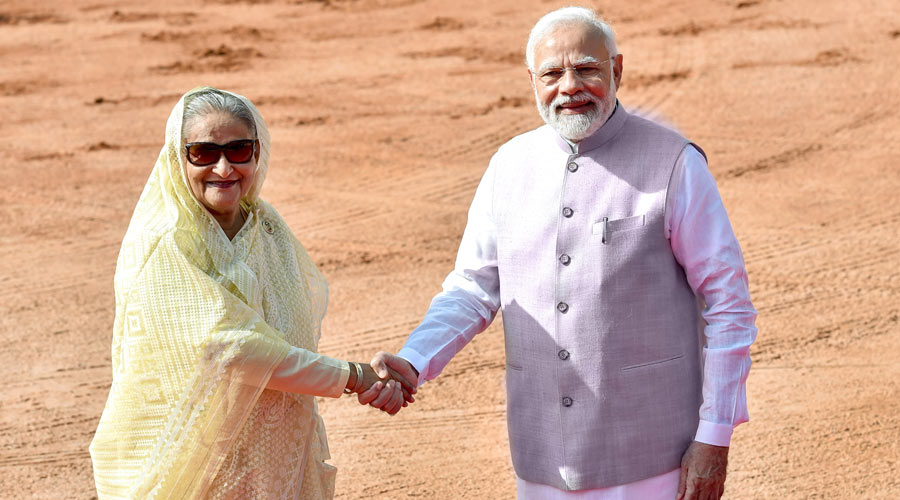Whenever the Bangladesh prime minister, Sheikh Hasina Wajed, visits India, political warmth is almost guaranteed. That comfort was on display this week too as she travelled to New Delhi for meetings with her Indian counterpart, Narendra Modi, and the president, Droupadi Murmu, before a trip to Ajmer. India has few firmer friends than Ms Wajed, whose family relations with New Delhi mirror those of her nation. She and Bangladesh enjoy support across the political spectrum in India. Yet, that is precisely why it is also disappointing that India has failed for a decade now to deliver on the single biggest request Ms Wajed has made of New Delhi: a water-sharing treaty for the Teesta river. Speaking at a reception before her meeting with Mr Modi, she spoke of how the absence of adequate water in Bangladesh’s part of the Teesta meant that her country could not supply India with the highly sought-after hilsa fish. Addressing journalists after her meeting with the Indian prime minister, Ms Wajed referred to the Teesta, once again, expressing hope for an early resolution to negotiations on water sharing. Perhaps aware that he had nothing to offer on that count, Mr Modi stayed completely silent on the Teesta in his address.
India had agreed to a water-sharing deal in 2011 before the then government of Prime Minister Manmohan Singh pulled back under pressure from the West Bengal chief minister, Mamata Banerjee. With climate change increasingly threatening the predictable supply of water around the world, differences such as the one over the Teesta will only get more complex the longer they are allowed to linger. It is vital that Mr Modi’s government finds a solution that is acceptable to all sides and allows India and Bangladesh to focus on other priorities. For the neighbours have plenty that they need to work on together — from security against terrorists to connectivity projects linking South Asia to Southeast Asia. To be sure, Ms Wajed’s visit did yield significant outcomes, including the inauguration of an India-financed thermal power plant and water sharing from the smaller Kushiyara river. A railway bridge over the Rupsha river was also launched. However, at a time when India is attempting to compete with China for influence in their shared neighbourhood, it is important for New Delhi to demonstrate sensitivity to Dhaka’s priorities. Ms Wajed described India as Bangladesh’s “most important and closest neighbour”. India must make sure that the relationship stays that way.











